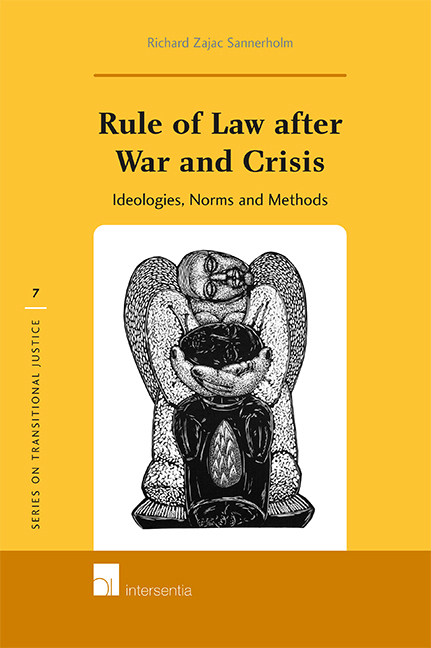6 - Effectiveness and International Accountability
Published online by Cambridge University Press: 16 December 2020
Summary
INTRODUCTION
The two preceding chapters were the subject of discussion on methods applied in law reform, constitution-making and institutional reform. This chapter examine the question of accountability and effectiveness of rule of law reform.
There is a fundamental paradox in rule of law assistance, particularly in situations where international actors exercise a form of executive power. While they promote reforms with intent to achieve judicial independence, the supremacy of law, the separation of powers and increased access to justice, statebuilding missions often perform in ways that contradict those very principles.
This is explained partly by the idea itself of state-building missions. International actors substitute for local governments, or assume responsibility for legal and judicial reform, because of weak domestic capacity. International participants are not elected officials, and often the local interlocutors with which they cooperate are transitional governments, but interventions are accepted on the basis of necessity or out of human rights and humanitarian imperatives in order to redress past abuses and violations and for the maintenance of peace and security.
But while there might be acceptance towards the idea of state-building, there are deficiencies in the structure and methods that undermine effectiveness and accountability. One such deficiency arises from the employment of vague or excessively ambitious mandates as constitutional foundations for rule of law assistance. This aspect, together with the existence of weak coordination mechanisms for multilateral interventions, is discussed first in this chapter. The multitude of donor agencies is one impediment to effectiveness and accountability. Each comes supplied with their own policies, procurement procedures, contracts, and lines of accountability, and in the starkest cases “each organization asks for exemptions from prevailing law; and each drains the talent of the government and the private sector while lamenting the government's lack of capability”.
Such attitudes and habits give rise to tensions and disagreements between international and national actors. The president of East Timor, for example, tired of constant suggestions from international agencies on what his country was required to accomplish in the transitional period, stated: “We are not interested in a legacy of cars and laws, nor are we interested in a legacy of development plans for the future designed by [people] other than East Timorese”.
- Type
- Chapter
- Information
- Rule of Law after War and CrisisIdeologies, Norms and Methods, pp. 211 - 232Publisher: IntersentiaPrint publication year: 2012

